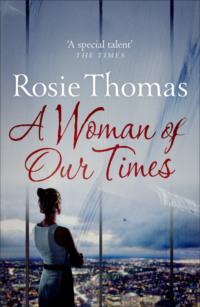
Полная версия
Lovers and Newcomers
‘You look a picture. I hope you’ll be happy, love,’ Joyce murmured.
Selwyn was very quiet. He slept a lot, as if he were clinging to every possible moment of oblivion. Without telling Miranda, he stopped going to lectures and practicals, and he smoked even more dope. Instead of balancing his life out, as he had hoped it would, impending marriage was destabilizing it even further. As soon as she became a bride-to-be, Miranda seemed to slip out of his grasp and turn into someone less compliant, less adoring, much less in his thrall than she had ever been before. She was often irritable with him, and he felt so limp and so hopeless that he knew she could hardly be blamed for that. His only responsibility before the wedding, apart from taking his velvet suit to the cleaners, was to find a flat that they could afford to move into together. He did drag himself out to look at two or three places, but the sheer effort of the process exhausted him, and he was shocked to discover that he couldn’t imagine living in these rooms with Miranda as his wife. He never even suggested that they might visit one of the rickety attics or basements together.
One week before the wedding, he got up very early in the morning and left his fiancée sleeping. From Euston he caught a train to Wolverhampton and then took a taxi to Joyce’s.
When she opened the door to him Joyce thought he had come to tell her that Miranda was ill, or dead. She snatched at his wrists, shouting in panic.
‘Where is she? What’s happened to her?’
‘Let me in,’ he begged. ‘She’s all right, it’s me that’s wrong.’
In the narrow hallway, with bright wallpaper pressing in on him, Selwyn blurted out that he couldn’t marry Miranda after all. In her relief that her daughter wasn’t dead or dying, Joyce turned cold and glittery with anger.
‘Does she know?’
‘No. I’ve come to tell you first.’
‘My God. You cowardly, selfish, pathetic creature.’
‘Yes,’ Selwyn miserably agreed. He didn’t need Joyce to tell him what he was. ‘It isn’t right to marry her. I won’t make her happy.’
Joyce looked him up and down. ‘No. You would not. Right. Now you’ve told me, bugger off out of here. I don’t want to look at your face. And leave my daughter alone, do you hear? We’ll be all right, we always have been, Barbara and me. Just don’t mess up her life any more than you’ve done already.’
‘I won’t do that,’ Selwyn promised.
He was true to his word. He gave up his medical studies, left London, and went to stay with the friends in Somerset who had been going to lend the happy couple their cottage for the honeymoon. He started work with a local carpenter, discovered that he had a talent for woodworking, and in between fitting staircases and kitchen cupboards he began to buy, restore and sell furniture.
Miranda recovered, helped by a rebound affair with an actor.
Seven years later, when Amos Knight married the quiet, pretty girl called Katherine whom he had met at the house of one of the other young barristers in his chambers, Miranda wore to their wedding the Ossie Clark dress and the Biba hat. The outfit was by then grotesquely out of fashion, but Miranda carried it off. She was on the brink of making a small name for herself as an actress.
I can’t stop myself. Instead of walking out of the kitchen I lift my head, and our eyes meet. Selwyn’s eyelashes and hair are coated with grey dust, as if he’s made up to play an old man on some amateur stage. He doesn’t try to reach out for me again, and I’m sharply aware that this is disappointing. My heart’s banging against my ribs, surely loud enough for him to hear, and my mouth is so dry that I don’t think I can speak.
Why now? Why, after all these years, is this happening again?
The answer comes to me: it’s precisely because of now.
We’re not young any longer, there’s no network of pathways branching invitingly ahead of us. No personae to be tried on for size. We’re what, and who, we are.
But we’re not yet ready to be old.
We stand in the silent kitchen, speechless and gaping like adolescents, but both of us realizing that through decades of duty and habit we’ve somehow forgotten about the thrill of choice: oh God, the breathtaking drama of sexual choice. The cliché that swims into my head might have been made for this instant. I do feel weak at the knees. I’m not sure that my legs will hold me upright.
When I don’t say anything, Selwyn sighs. He brushes his hand through his hair and a shower of splinters and plaster particles fall like snow.
‘Would it be all right for me to have a bath?’ he asks.
‘You don’t have to ask permission. You live here.’ My voice comes out in a croak, sounding as if I’ve borrowed it from someone else.
‘Thank you,’ he says.
I listen to his steps as he goes upstairs, the familiar creak of the oak boards, the clink of the bathroom latch somewhere overhead.
Without giving myself time to think, I run after him.
From the linen cupboard opposite my bedroom door I snatch up an armful of fresh towels. I race along the landing and push at the bathroom door. Not locked. It swings inwards.
The taps are full on and the room is already cloudy with steam.
Selwyn’s barefoot. He’s taken off his filthy sweater and shirt and dropped them on the floor. As soon as he sees me he nudges the clothes gently aside with his bare foot, clearing a space. He holds out his arms.
What I feel is an extraordinary lightening, giddiness, swirling of blood; it’s like being very drunk but with all my senses cleansed and heightened.
‘I’ve brought you some clean towels.’
‘No, you haven’t.’
He snatches the towels and drops them on top of the clothes.
It’s me who takes the last step.
Our mouths meet. Immediately we begin to consume each other, as if we’re starving, with the steam billowing in clouds around us. Out of the corner of my eye, as Selwyn twists off my jersey, I see that the bath is almost overflowing.
Once we’re started, rediscovering the inches of skin and the declivities and shadows of a pair of bodies that were once familiar territory (only yesterday, as it now seems), it’s impossible to stop.
Selwyn fumbles to his knees, drawing me down with him, wrestling to extricate me from absurd layers of vest and straps. Towels coiled with clothes and grit mound beneath us. Water laps at the very rim of the bath.
I hear myself gasping with laughter. ‘There’s going to be a flood.’
‘Fuck it.’
He drags me with him as he strains to reach the taps and stem the tide.
In the quiet that follows, there’s the sound of voices.
‘Oh, sweet Jesus.’ Selwyn slumps back against the side of the bath.
I’m already on my feet, spitting building rubble out of my mouth and frantically raking fingers through my hair. I pull my clothes into a sort of order and plunge out of the bathroom.
Colin and Katherine and Polly are all in the hall below. They’re laughing and exclaiming and apparently having some difficulty in taking off their boots and coats.
Polly glances up and sees me on the landing.
‘Colin’s been getting the eye from a nice young chef,’ she calls.
‘I had to carry these two home, just about,’ Colin says drily.
The hall clock chimes. It’s four o’clock in the afternoon.
Luckily, they’re all too busy and happy to notice anything.
I run down the stairs, relief all but cancelling out guilt.
Ben and Nicola
The boy climbed the flight of stairs that led straight up from the street door. With the usual smell of warm grease from the café following him, he leaned briefly against the thin ply of the flat door and juggled a bunch of flowers, a brown takeaway bag and a carton of milk. He twisted a key in the Yale and the door sighed open. He nudged it further with his hip and wriggled into the dark, confined space beyond.
‘Nic? ’S me.’
No answer came but he shouldered his way cheerfully onwards past the coat pegs and the parked Hoover and a stack of cardboard boxes. The light in the main body of the flat was slightly brighter. There was only one room, L-shaped, with a kitchenette and a partitioned bathroom that would not have passed a health and safety inspection with flying colours. To excuse this Nicola’s Greek landlord told her that he was not making formal rental, no, more like place for his own family, and cheap for now while he wait for his cousin to come and fix up.
Nicola was sitting in the armchair at the end of the room farthest from the unmade bed, next to a window overlooking a row of lock-ups and the fading leaves of a plane tree. Her knees were drawn up to her chest. Ben saw that she was wearing her grey holey jersey and leggings, for about the fourth day running, but she had pulled a little skirt on over the leggings and her hair was freshly washed.
‘Hi, babe, you OK? Look, I got you these.’ He held out the flowers, yellow and white daisies that he had chosen from a green enamel bucket outside the grocer’s at the end of the road. ‘And some soup as well, properly healthy, bean and something. It might have got a bit cold but I can heat it up again, easy. Or would you rather have a cup of tea? There’s milk.’
Nicola gazed up at him, her wide eyes expressionless. He was uneasily conscious of wanting to placate her, although he didn’t know why she should need this treatment. She had been a bit off, lately. He kept looking up and finding that she was staring at him. When he responded with his wide, frank smile she’d blink, and quickly look away again.
‘Not bad out,’ he went on. He put down the takeaway bag, and the milk and flowers.
Nic stirred, unwinding her legs and biting off a yawn. ‘How was work?’
‘Yeah. It was good. You know, average.’
‘Did you speak to him?’
‘He’ was the editor and manager of the local listings and events magazine where Ben worked part time. Ben wanted to be a writer, like his mother had once been, and even though what he mostly did was go out to the post office or ring venues to check the times of the week’s gigs, he insisted that this was the perfect pathway to literary success. Ben had been saying for a couple of weeks now that he only had to ask and he’d get a proper slot, like a column of his own or something.
‘No. Didn’t get a chance. It was mental there today.’
‘Right.’
Nic stood up. Her shoulders dropped and she reached out an arm and hooked it around him.
‘Thanks for the flowers.’
‘OK. I wish…’ Ben hesitated, lost as he often was for words to express his desire for all to be well, for there to be a safe enclosure for himself and Nic within the only slightly enticing chaos and mystery that the adult world seemed to present. Best of all would have been a house in the country, with a wilderness garden, the sort of place where he and his sisters had been lucky enough to grow up. ‘Well, you know.’
They stood close together, with Ben’s chin resting on Nicola’s head.
‘Are you hungry?’ he asked gently.
‘No. What time have you got to go out?’
Ben earned some extra money from working in the set-up and take-down crew of a smart party organizer. The hours were awkward, but the pay was better than bar work.
‘’Bout four?’
She moved away from him and twisted the daisies out of their paper. There wasn’t a vase, so she splayed them out in a plastic jug and put them on the table.
‘Gina wants me to babysit later.’
Nic worked three days and occasional evenings as nanny to the two small children of a GP, and the other two days she went to college to train in alternative beauty therapies. Their various different commitments meant that Ben and Nic sometimes only saw each other for a few hours a week.
‘D’you want to go out for a walk?’
‘I don’t know. No, not really.’
Ben followed her from the table to the armchair, his movements unconsciously mirroring hers. He was two years younger, but it could seem like much more. Nic sighed.
‘Maybe we could just go to bed for an hour.’
He grinned at that. ‘Maybe. Or, I dunno, perhaps we should do the washing up instead?’
Nic’s fugitive smile flashed at him, making her look like the girl he had first caught sight of at an unlikely party. ‘Hey. Watch it.’
She padded across to the bed as he unlaced his Converse and took off his jeans. Nic lay down just as she was, balling up her small fists inside the sleeves of her jumper. Ben stretched out half on top of her, his hands sliding up her ribcage, but she turned her face away to avoid his mouth.
‘No, Ben, wait a minute, can’t you? Let’s just have a cuddle.’
‘After,’ he muttered, trying to press his knee between hers. His mobile began to ring in the pocket of his jeans. ‘Shit. Better get that.’
He reached a long arm for the phone and studied the display. Then he turned it off. ‘My sister,’ he yawned. He rolled back against Nic but she was lying on her back now, her chin lifted and her eyes fixed on the ceiling.
‘I’m pregnant,’ she said.
Shadows of the plane tree branches moved on the ceiling.
‘What?’
‘Pregnant. In the club. Up the duff. Expecting. Bun in the…’
‘Shit,’ he said again. And then, on a long breath, ‘No.’
Ben shook his head, trying somehow to dislodge this enormous notion before it could settle on him. ‘How?’
‘Oh God, Ben, don’t make this so hard. Can’t you ever meet me halfway? How do you think?’
‘But we always use…well, I know, not every time, but…’
‘There you are,’ Nic said coldly.
‘How do you know? Are you sure?’
‘I got a tester thing. I did it two days ago, and again this morning. You pee on a stick.’
‘And?’
‘It’s positive.’ She spaced out the words, speaking as if to a child.
Ben fell back now and they lay side by side. Then he reached out and found her hand. He laced his fingers with hers, trying to radiate reassurance.
‘It’s all right, baby.’
Nic writhed away from him. ‘Don’t call me that. Just don’t, do you hear?’
There was a choke in her voice that he had never heard before.
‘I’m sorry. Listen. We’ll sort it out. You know, you can get a…’
‘An abortion,’ Nic said. ‘That’s what it’s called.’
‘Yeah, that’s right. I know what it’s called. You could maybe ask Gina what we should do.’
‘No way. She’s so fucking brisk and tidy and sorted, she’s the last person I’d ask.’
‘OK, OK. But there are people. Agencies, and clinics and things. There’s my mum, as well, if it comes to that.’
‘Your mum?’
Nic suddenly began to cry, quite noisily, with her mouth open and tears sliding out of the corners of her eyes. Unable to bear this, Ben hoisted himself on to his knees and knelt over her, gripping her arms.
‘Nic, don’t cry. Please don’t cry. We’ll fix it, we’ll do it together. I’m here, look.’
She looked into his eyes. ‘Will we?’
‘Yes. Of course we will. It happens.’
‘Promise?’
‘Yes. Cross my heart.’
‘I feel so bad. Like it’s a bad thing, a really black wicked thing we’ve done, and we shouldn’t have and everything will be wrong now…’
‘Hush. It won’t. It’s going to be all right, Nic. I promise.’
Ben leaned down and kissed her, tasting the salt on her cold mouth, and it was long seconds before she yielded and wound her arms around his neck.
‘I promise,’ he repeated.
Alpha and Omega
Alexandra Davies rummaged in her bag to retrieve her mobile phone, wedged it precariously between her left ear and her shoulder, and with her right index finger jabbed the button of the stop request at the traffic lights.
‘Yeah, Omie? Hi?’
‘God, what’s that racket? Listen, have you heard from Mum?’
‘No,’ Alexandra told her sister. A bendy bus swished by and then a high-sided truck that rocked her with a blast of turbulence.
Olivia’s voice rose slightly.
‘Alph? Are you there?’
‘Yeah. It’s traffic. I’m out.’
‘What d’you think they’re doing?’
The lights refused to change but the stream of vehicles briefly slowed and Alexandra took the opportunity to dash across the first three lanes. It was coming on to rain, and she had no hood or umbrella with her.
‘Who?’
‘Our parents.’
‘Omie, you know as well as I do what they’re up to. They have moved further out to the sticks, they’re doing up some wreck of a house on Miranda Meadowe’s estate, Dad’s full of wild schemes, Mum’s going along with it. What’s new?’
Olivia sighed, and her sister could hear her settling herself for a long talk. ‘Nothing, I suppose, when you put it like that. I’m worried about them, though. They don’t call, do they? And when I call them, they’re always busy. Ben says the same, you know.’
‘I don’t think it’s a cause for worry, is it? They’ve got a life. We’ve got a life. Even Ben has. We’re a success story, the Davies family.’
From the safety of the central island Alexandra weighed up her chances of survival if she darted onwards against the lights.
Olivia said, ‘Is that what you call it? Growing up felt more like a car crash, most of the time.’
‘Success against the odds. Have you talked to Sam or Toby about it? It must be the same for them.’
‘No, it isn’t. The Knights were at boarding school and always moving anyway. Hampstead, Islington, Richmond, one of those places. But I so miss our old house, you know? Don’t you? I have these dreams about it, all the time. It’s where we grew up. It’s got all our history locked in it.’
‘I know, I feel the same. But at the end of the day it’s only bricks and mortar, isn’t it? The house had to go, they needed the money, that’s that, and what matters is we’ve all got each other. Even Mum and Dad are still around for us, you know, even though they’re not right here.’
‘You’re right, Alph, ’course you are. I just feel a bit, what, lost? Abandoned. Is that totally weird at our age?’
‘You mean, Parents Leave Girl Twins, Twenty-five, All Alone in World. Social Services Intervene?’
They made the humming noise that was their shorthand for laughter. ‘OK, so I’m a freak.’
‘No, you’re not. Mum’s always been right beside us. So has Dad, even, in his own way. Now they’ve sold our house and gone to live somewhere we don’t know at all with what might seem to be a random new family made up of friends of theirs from a hundred years ago, and they’re suddenly quite busy with stuff that doesn’t seem to concern us. It’s bound to be strange, isn’t it? But isn’t this what happens to all families, in the end? We were never going to be at home in the kitchen with Mum for ever and ever with Ben in his highchair and us two making jam tarts. At least they’re not divorced, like most people’s p’s.’
Alexandra ran, and successfully completed the crossing. Fat raindrops landed on the pavement, the same size as the blobs of discarded gum already speckling it. She transferred her mobile to the other ear, wedged it in place again and fished in her bag for her purse. She calculated that there was just time to run into Pret and pick up a coffee before going back to work.
‘Yeah. It is what happens. Anyway.’ Olivia sighed. The conversation had followed a familiar pattern, with her own anxieties temporarily allayed by Alexandra’s reassurances. ‘I forget what you’re doing tonight?’
‘Meeting Cam and Laure. Might go out after. You?’
‘Film, something foreign, can’t remember what it’s called. Tom wants to see it.’
‘Speak later, then?’
‘Yeah. Thanks, Alph.’
‘Love you. I’ve got to go now. Bye, sis.’
‘Me too. Bye. Wait – I’ll give Ben a call, shall I? I don’t know what he and Nic are doing. I haven’t seen them, either.’
‘Do that. Bye.’
Alexandra crammed her phone into the pocket of her black jeans and slid through the queue at the coffee counter. She had seven minutes of her lunch hour left. She would talk to Olivia at least once more, perhaps twice, before bedtime.
The Davies girls were monozygotic, or identical, twins.
At their birth their father had exclaimed in rapture, holding the squalling crimson scraps against his heart, ‘These two are my world, from this day onwards. They are my Alpha and my Omega.’
The family story went that Selwyn had tried to insist that the babies should be christened accordingly, but Polly firmly opted for what she called nice, normal names.
Polly’s mother had agreed. ‘Lovely. Not letters, or Zebedee or Dusk or Cowslip, or whatever poor little children seem to get landed with nowadays.’
It made no difference though. To their family, their baby brother Ben, and most of their friends, the twins for ever bracketed the Greek alphabet between them. To each other and to the rest of the world apart from employers, airlines and the DVLC, they were Alph and Omie. Two halves of a whole, one another’s best and closest ally.
Not that they were all that much alike, at twenty-five, even to look at. From their Facebook profiles, it would have been difficult to deduce a relationship. Alexandra worked in retail marketing, and lived alone in a rented glass and steel studio flat near Bethnal Green. She wore monochrome clothes with a decidedly Japanese influence, and intended to set up her own company within five years. Olivia lived with her boyfriend in his chaotic flat off Shepherd’s Bush Road. She was a freelance illustrator, working from home, and was usually dressed in a picturesque scramble of rainbow knits and tie-dye.
Because they lived at opposite ends of town, the two girls didn’t see each other all that often, not more than twice or even once a week. The principal link between them, as vital as their umbilical cord had once been, was their pair of mobile phones. They always had exactly the same make and model. It was really weird, Omie said, but she had lost hers one night because it had fallen out of her pocket and dropped down the toilet when she was at a club, and she had been way too grossed out to reach down and fish it out again. But then less than twelve hours later, Alph had had her bag with her phone inside it stolen from beneath her desk by a sneak thief who had slipped into her office while she was down the corridor talking to her boss and everyone else was out at lunch.
The twins consulted each other, and then agreed on the new model.
They talked or texted each other all the time, the little chirrup of a ringtone or bleep of an arriving message so familiar that they presented no barrier to the seamless dialogue between them.
THREE
The digger driver reversed smartly away from the trench. A flock of gulls rose from the raw earth and banked over the ochre tree tops, wheeling back as the machine trundled off to dump its hopper-load of soil and flints on a swelling mound. It was a soft, windless morning. The grinding of the digger and the cries of the gulls carried a long way in the still air.
Two workmen towed a heavy roll of polythene sheeting from the back of a truck whilst the site manager in a fluorescent jacket and hard hat talked on his mobile at the door of the Portakabin office. On the lip of the trench a young man in a helmet was standing alone with his hands in his pockets. He studied the loads of earth as they were sliced and scooped away, from time to time glancing over at the contractor or his client. He was the first person at the site to notice two women and a tall, thin man strolling towards them from the direction of the main house. He sighed to himself. They were entitled to be here, of course, but in his experience visitors at an excavation meant nothing but delays and questions. He didn’t know Mrs Meadowe personally, but he came from Meddlett where she had the reputation of being unfriendly. He stuck his hands deeper in his pockets and concentrated on the digging.









